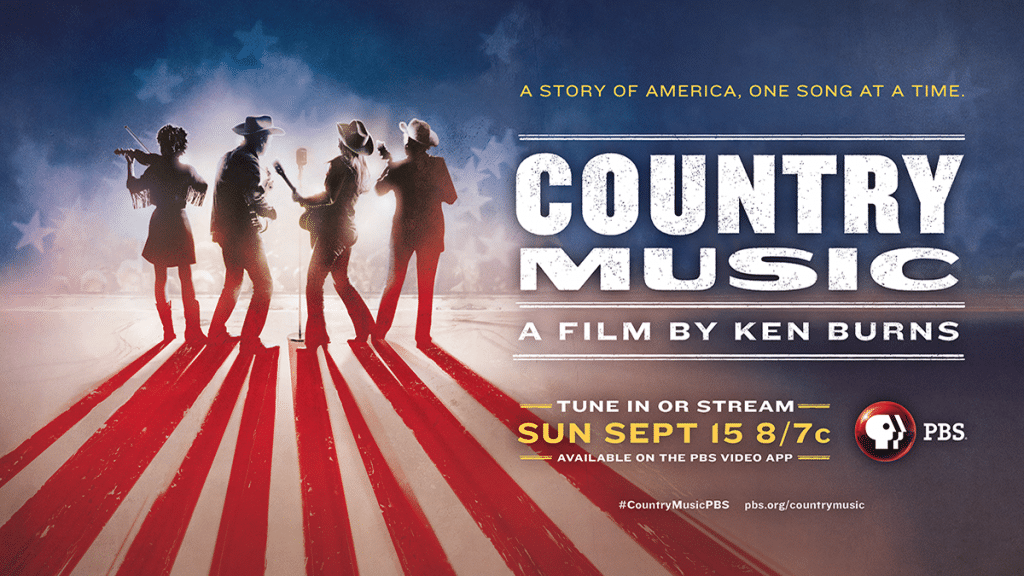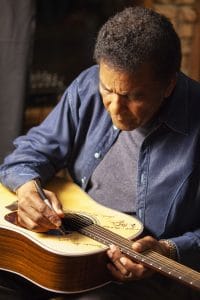
Step back in time and journey through the compelling history of a truly American art form with Country Music, a new eight-part film directed by Ken Burns, and produced by Burns and his long-time collaborators Dayton Duncan and Julie Dunfey.
The documentary, written by Duncan, who also wrote the illustrated companion book (coming from Alfred A. Knopf on September 10, 2019), chronicles the highs and lows of country music’s early days, from southern Appalachia’s songs of struggle, heartbreak and faith to the rollicking Western swing of Texas, California’s honky-tonks and Nashville’s “Grand Ole Opry.” The film follows the evolution of country music over the course of the 20th century as it eventually emerges to become “America’s music.”
When to Watch
Country Music premiered on CPTV in September 2019. The series will encore on CPTV in winter 2020, with episodes airing Fridays at 10:30 p.m., and encoring immediately following their conclusion, beginning January 3.
All episodes are also available to stream for PBS Passport members. (For more information about Passport membership, click here.)
More About Country Music

Charley Pride signs a Martin D-28 guitar. Pride is among the 76 of the 101 country music artists interviewed for the series who signed two Martin D-28 guitars. (Photo courtesy of Craig Mellish)
Country Music explores crucial questions – “What is country music?” and “Where did it come from?”– while focusing on the biographies of the fascinating trailblazers who created and shaped it — from the Carter Family, Jimmie Rodgers, Bill Monroe and Bob Wills, to Hank Williams, Patsy Cline, Johnny Cash, Merle Haggard, Loretta Lynn, Charley Pride, Willie Nelson, Dolly Parton, Emmylou Harris, Garth Brooks and many more — as well as the times in which they lived. Much like the music itself, the film tells unforgettable stories of hardships and joys shared by everyday people.
Country Music digs deep to uncover the roots of the music, including ballads, minstrel music, hymns and the blues, and its early years in the 1920s, when it was called “hillbilly music,” and was recorded for the first time and played across the airwaves on radio station barn dances. It explores how Hollywood B movies instituted the fad of singing cowboys like Gene Autry and shows how the rise of juke joints after World War II changed the musical style by bringing electric and pedal steel guitars to the forefront.
The film witnesses the rise of bluegrass music with Bill Monroe and reveals how one of country music’s offspring — rockabilly — evolved into rock and roll in Memphis. Throughout, the documentary focuses on the constant tug of war between the desire to make country music as mainstream as possible and the periodic reflexes to bring it back to its roots.

Loretta Lynn signs a Martin D-28 guitar. (Photo courtesy of Jared Ames)
As Burns and Duncan weave together the musical stories, they connect the history of country music to the larger story of America, looking at how artists and songwriting reflected periods of depression, war and cultural upheaval, and how radio and later television impacted the art form. The series also tells the story of how Nashville came to be not only the epicenter of the country music industry, but Music City USA.
At the film’s heart are the stories of unforgettable songs and the artists who created them: their emergences from humble beginnings, their musical influences and their breakthrough moments. The film explores the extraordinary connection between country music artists and fans, and notes the enduring influence of particular songs and musicians across generations. The narrative ends in the mid-1990s as a young Garth Brooks emerges from a small venue in Nashville to achieve phenomenal success, brings country music to an entirely new level of popularity, and yet shows up to sign autographs for more than 20 hours at the Country Music Association’s Fan Fair.
Eight Years in the Making
Duncan, Burns and Dunfey spent eight years researching and producing the film, conducting interviews with more than 100 people, including 40 members of the Country Music Hall of Fame (17 of those interviewed have since passed on). Among those storytellers are historian Bill Malone and a wide range of country artists such as Marty Stuart, Rosanne Cash, Vince Gill, Reba McEntire, Merle Haggard, Dolly Parton, Willie Nelson, Dwight Yoakam, Emmylou Harris, Kris Kristofferson, and Naomi and Wynonna Judd, as well as studio musicians, record producers and others. The film uses more than 3,200 photographs and over two hours of archival footage, including rare and never-before-seen photos and footage of Jimmie Rodgers, Johnny Cash and others.
For more information about the series, click here. Viewers are also encouraged to join the conversation on social media using #CountryMusicPBS.
